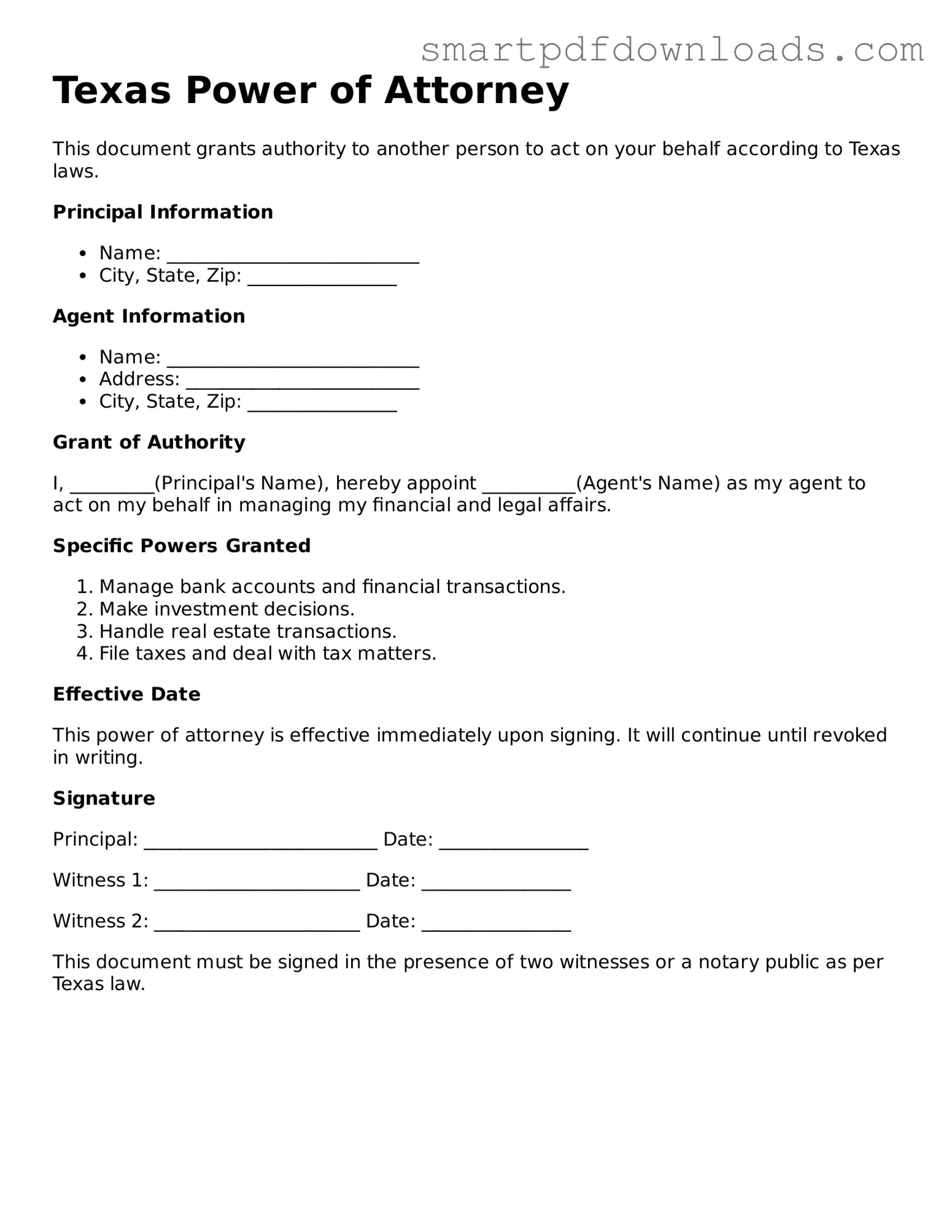Legal Power of Attorney Form for the State of Texas
The Texas Power of Attorney form is a legal document that allows an individual, known as the principal, to designate another person, referred to as the agent, to make decisions on their behalf. This form can be crucial for managing financial, medical, or legal matters when the principal is unable to do so. Understanding how to properly use and execute this form ensures that your wishes are respected and your affairs are managed according to your preferences.
Edit Power of Attorney Online

Legal Power of Attorney Form for the State of Texas
Edit Power of Attorney Online

Edit Power of Attorney Online
or
⇓ PDF File
Finish the form and move on
Edit Power of Attorney online fast, without printing.